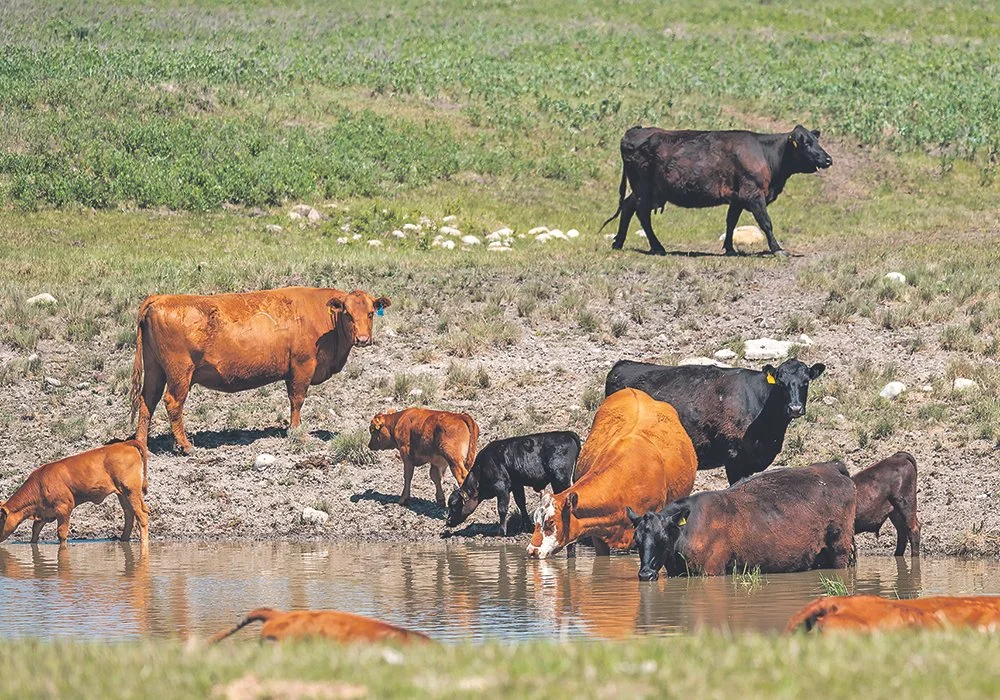A second rural municipality in Alberta has declared an agricultural disaster because of drought this spring as beef producers head into summer, a period typically of less rain. “We haven’t seen the total effects of the drought,” said Stan Schulmeister, reeve of the County of Paintearth east of Red Deer. “But the agricultural producer that’s strictly dealing with livestock is going to find it very difficult to find feed this year because it’s almost province-wide, the damage to the hay crop and so on.”
Baffinland exceeded dust impact projections for 3 straight years: QIA
The spread of dust caused by Baffinland Iron Mines Corp.’s Mary River mine is larger than predicted and is impacting drinking water, wildlife and sea ice in the surrounding area, says a Qikiqtani Inuit Association manager. Regulatory affairs manager Chris Spencer presented three years’ worth of reports to the association’s board members for the first time Thursday. The reports summarize an investigation, launched in 2020, into how dust spread from the mine is affecting the environment and Inuit culture. QIA found foxes near the mine that were “deeply discoloured red” and acting strangely; that dust spread was worse than what Baffinland had predicted it would be each year; and that water in several locations had surpassed national drinking water safety guidelines for aluminium content.
As water sources dry up, towns in southern Quebec sound the alarm
During an unrelenting stretch of dry, hot weather last August, Rachel Mahannah and her husband spent two hours a day hauling water from their other farm a kilometre and a half away, to make sure their dairy cows didn't get dehydrated. The well on the dairy farm, 70 metres deep, had almost run dry. "That was the first kind of red flag that came up for us," said Mahannah, who co-owns Mahvhays dairy farm in Brigham, Que., about 75 kilometres southeast of Montreal.
$6M available for P.E.I. farms to help cut carbon
The P.E.I. Federation of Agriculture is now receiving applications for a federal program granting money to farmers for projects that will cut carbon emissions. The federation will be distributing $6 million in federal funding to Island farmers as part of a $182-million national program announced earlier this year. The projects can range from anything from winter cover cropping, to nitrogen management and advanced grazing management.
Throne Speech Outlines Need For 'Guaranteed' Water
Agriculture Minister Ralph Eichler commented on the Manitoba's water management strategy. "We learned fast in regards to how we should be managing water with the drought in several parts of the province last year and how we managed those waters, so that we have a reliable source of good reliable safe water to drink and feed to our livestock as well," he said. "Critically important that we get it right. That's going to be part of our overall water management plan, which we've invested a million dollars in so far." The throne speech also stated that the Manitoba Protein Advantage Strategy will not continue to attract investment unless water is guaranteed for producers and processors.
Flooding in B.C. ‘testing the resilience’ of dairy farmers, says association
Farmers in southern British Columbia are coming together to save livestock as parts of the Fraser Valley remain under water from devastating flooding, says a member of the association that represents the province’s dairy farmers. Holger Schwichtenberg, chair of the board for the BC Dairy Association, said he was not yet sure how many farmers were working to move their milking cows, but in such situations, they would reach out for help to get their animals off site.







